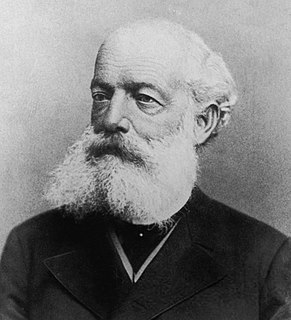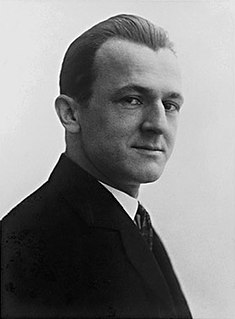Top 223 Metaphysics Quotes & Sayings - Page 4
Explore popular Metaphysics quotes.
Last updated on April 17, 2025.
There would be no history as we know it, no religion, no metaphysics or aesthetics as we have lived them, without an initial act of trust, of confiding, more fundamental, more axiomatic by far than any “social contract” or covenant with the postulate of the divine. This instauration of trust, this entrance of man into the city of man, is that between word and world.
If we take in our hand any volume; of divinity or school metaphysics, for instance; let us ask, Does it contain any abstract reasoning concerning quantity or number? No. Does it contain any experimental reasoning concerning matter of fact and existence? No. Commit it then to the flames: for it can contain nothing but sophistry and illusion.
Kantian ethical theory distinguishes three levels: First, that of a fundamental principle (the categorical imperative, formulated in three main ways in Kant's Groundwork); second, a set of duties, not deduced from but derived from this principle, by way of its interpretation or specification, its application to the general conditions of human life - which Kant does in the Doctrine of virtue, the second main part of the Metaphysics of Morals; and then finally an act of judgment, through which these duties are applied to particular cases.
The tragedy is that we cannot believe the dogmas of religion and metaphysics if we have the strict methods of truth in heart and head, but on the other hand, we have become through the development of humanity so tenderly suffering that we need the highest kind of means of salvation and consolation: whence arises the danger that man may bleed to death through the truth that he realises.
Epistemology now flourishes with various complementary approaches. This includes formal epistemology, experimental philosophy, cognitive science and psychology, including relevant brain science, and other philosophical subfields, such as metaphysics, action theory, language, and mind. It is not as though all questions of armchair, traditional epistemology are already settled conclusively, with unanimity or even consensus. We still need to reason our way together to a better view of those issues.
What a silly thing love is!' said the student as he walked away. 'It is not half as useful as logic, for it does not prove anything, and it is always telling one of things that are not going to happen, and making one believe things that are not true. In fact, it is quite unpractical, and, as in this age to be practical is everything, I shall go back to philosophy and study metaphysics.' So he returned to his room and pulled out a great dusty book, and began to read.
Until educators, individuals, artists, intellectuals and various social movements address how the metaphysics of casino capitalism, war and violence have taken hold on American society (and in other parts of the world) along with the savage social costs they have enacted, the forms of social, political, and economic violence that young people are protesting against, as well as the violence waged in response to their protests, will become impossible to recognize and act on.
You can be a thorough-going Neo-Darwinian without imagination, metaphysics, poetry, conscience, or decency. For 'Natural Selection' has no moral significance: it deals with that part of evolution which has no purpose, no intelligence, and might more appropriately be called accidental selection, or better still, Unnatural Selection, since nothing is more unnatural than an accident. If it could be proved that the whole universe had been produced by such Selection, only fools and rascals could bear to live.
The notion that science does not concern itself with first causes - that it leaves the field to theology or metaphysics, and confines itself to mere effects - this notion has no support in the plain facts. If it could, science would explain the origin of life on earth at once - and there is every reason to believe that it will do so on some not too remote tomorrow. To argue that gaps in knowledge which will confront the seeker must be filled, not by patient inquiry, but by intuition or revelation, is simply to give ignorance a gratuitous and preposterous dignity.
The metaphysical apologia at least betrayed the injustice of the established order through the incongruence of concept and reality. The impartiality of scientific language deprived what was powerless of the strength to make itself heard and merely provided the existing order with a neutral sign for itself. Such neutrality is more metaphysical than metaphysics.
Liberty, according to my metaphysics, is an intellectual quality, an attribute that belongs not to fate nor chance. Neither possesses it, neither is capable of it. There is nothing moral or immoral in the idea of it. The definition of it is a self-determining power in an intellectual agent. It implies thought and choice and power; it can elect between objects, indifferent in point of morality, neither morally good nor morally evil.
Questions are not happenstance thoughts nor are questions common problems of today which one picks up from hearsay and booklearning and decks out with a gesture of profundity questions grow out of confrontation with the subject matter and the subject matter is there only where eyes are, it is in this manner that questions will be posed and all the more considering that questions that have today fallen out of fashion in the great industry of problems. One stands up for nothing more than the normal running of the industry. Philosophy interprets its corruption as the resurrection of metaphysics.
It's so hard to believe in anything anymore, you know what I mean? It's like, religion, you really can't take it seriously, 'cause it seems so mythological, and seems so arbitrary; and then on the other hand, science is just pure empiricism, and by virtue of its method, it excludes metaphysics. I guess I wouldn't believe in anything if it weren't for my lucky astrology mood watch.
Will is the measure of power. To a great genius there must be a great will. If the thought is not a lamp to the will, does not proceed to an act, the wise are imbecile. He alone is strong and happy who has a will. The rest are herds. He uses; they are used. He is of the Maker; they are of the Made. Will is always miraculous, being the presence of God to men. When it appears in a man he is a hero, and all metaphysics are at fault.
The hymns of David, the plays of Shakespeare, the metaphysics of Descartes, the crimes of Borgia, the virtues of Antonine, the atheism of yesterday and the materialism of today, were all emanations of divine thought, doing their appointed work. It was the duty of the church to deal with them all, not as though they existed through a power hostile to the deity, but as instruments of the deity to work out his unrevealed ends.
Thus metaphysics and mathematics are, among all the sciences that belong to reason, those in which imagination has the greatest role. I beg pardon of those delicate spirits who are detractors of mathematics for saying this . . . . The imagination in a mathematician who creates makes no less difference than in a poet who invents. . . . Of all the great men of antiquity, Archimedes may be the one who most deserves to be placed beside Homer.
And indeed nothing but the most determined scepticism, along with a great degree of indolence, can justify this aversion to metaphysics. For if truth be at all within the reach of human capacity, it is certain it must lie very deep and abstruse: and to hope we shall arrive at it without pains, while the greatest geniuses have failed with the utmost pains, must certainly be esteemed sufficiently vain and presumptuous. I pretend to no such advantage in the philosophy I am going to unfold, and would esteem it a strong presumption against it, were it so very easy and obvious.
The religion of the short poem, in every age and in every literature, has a single commandment: Less is always more. The short poem rejects preamble and summary. It's about all and everything, the metaphysics of a few words surrounded by much silence. …The short poem is a match flaring up in a dark universe.
Science offers the boldest metaphysics of the age. It is a thoroughly human construct, driven by the faith that if we dream, press to discover, explain, and dream again, thereby plunging repeatedly into new terrain, the world will somehow come clearer and we will grasp the true strangeness of the universe. And the strangeness will all prove to be connected, and make sense.
Narrative and metaphysics alike become flimsy and frivolous if they venture too far from the home base of all humanism - the single, simple human life that we all more or less lead, with its crude elementals of nurture and appetite, love and competition, the sunshine of well-being and the inevitable night of death. We each live this tale. Fiction has no reason to be embarrassed about telling the same story again and again, since we all, with infinite variations, experience the same story.
In the case of Anathem, most of the research had to do with philosophy and metaphysics. Reading this sort of thing has never been my strong suit, so I actually had to be somewhat more "organized and results-driven" than is my habit. I just made up my mind that I was going to have to read some of these philosophy tomes, and I forced myself to read something like 10 pages a day until I had bashed my way through them.
Knapsack of the Metaphysicians.- Those who boast so mightily of the scientificality of their metaphysics should receive no answer; it is enough to pluck at the bundle which, with a certain degree of embarrassment, they keep concealed behind their back; if one succeeds in opening it, the products of that scientificality come to light, attended by their blushes: a dear little Lord God, a nice little immortality, perhaps a certain quantity of spiritualism, and in any event a whole tangled heap of 'wretched poor sinner' and Pharisee arrogance.
The question whether atoms exist or not... belongs rather to metaphysics. In chemistry we have only to decide whether the assumption of atoms is an hypothesis adapted to the explanation of chemical phenomena... whether a further development of the atomic hypothesis promises to advance our knowledge of the mechanism of chemical phenomena... I rather expect that we shall some day find, for what we now call atoms, a mathematico-mechanical explanation, which will render an account of atomic weight, of atomicity, and of numerous other properties of the so-called atoms.
When the Reformation became established, one of the things that was a question between Catholicism and the Reformation traditions was whether there was a hierarchy of being. If you look at Thomas Aquinas, for example, you have hierarchies of angels and all the rest of it, and hierarchies even of saints and then subsaints - people who aren't quite there, that sort of thing. The Reformation rejected all of that and created a new metaphysics, in effect, that is not hierarchical.
My aim is to be understood by everyone. I reject the 'depth' that people demand nowadays, into which you can never descend without a diving bell crammed with cabbalistic bullshit and intellectual metaphysics. This expressionistic anarchy has got to stop... A day will come when the artist will no longer be this bohemian, puffed-up anarchist but a healthy man working in clarity within a collectivist society.
The more serious poetry of the race has a philosophical structure of thought. It contains beliefs and conceptions in regard to the nature of man and the universe, God and the soul, fate and providence, suffering, evil and destiny. Great poetry always has, like the higher religion, a metaphysical content. It deals with the same august issues, experiences and conceptions as metaphysics or first philosophy.
In my formative years the people who influenced me most were the Christian existentialists, I mean men like Munier and Kierkegaard and perhaps most of all Nicholas Berdyaev and in my travels I looked for one thing more than anything. I rarely discussed, probably mainly because of language difficulties, metaphysics with the various religious people of other groups I'd meet with. But I'd very much try to see how they were incarnated, how their particular soul was incarnated or took roots into reality.
In order to live, man must act; in order to act, he must make choices; in order to make choices, he must define a code of values; in order to define a code of values, he must know what he is and where he is – i.e. he must know his own nature (including his means of knowledge) and the nature of the universe in which he acts – i.e. he needs metaphysics, epistemology, ethics, which means: philosophy. He cannot escape from this need; his only alternative is whether the philosophy guiding him is to be chosen by his mind or by chance.
The basic drive behind real philosophy is curiosity about the world, not interest in the writings of philosophers. Each of us emerges from the preconsciousness of babyhood and simply finds himself here, in it, in the world. That experience alone astonishes some people. What is all this - what is the world? And what are we? From the beginning of humanity some have been under a compulsion to ask these questions, and have felt a craving for the answers. This is what is really meant by any such phrase as 'mankind's need for metaphysics.'
The mystery of sound is mysticism; the harmony of life is religion. The knowledge of vibrations is metaphysics, the analysis of atoms is science, and their harmonious grouping is art. The rhythm of form is poetry, and the rhythm of sound is music. This shows that music is the art of arts and the science of allsciences; and it contains the fountain of all knowledge within itself.
Failure to summon forth the courage to risk a nondogmatic and nonevasive stance on such crucial existential matters can also blur our ethical vision. If our actions in the world are to stem from an encounter with what is central in life, they must be unclouded by either dogma or prevarication. Agnosticism is no excuse for indecision. If anything, it is a catalyst for action; for in shifting concern away from a future life and back to the present, it demands an ethics of empathy rather than a metaphysics of fear and hope.
Our mania for rational explanations obviously has its roots in our fear of metaphysics, for the two were always hostile brothers. Hence, anything unexpected that approaches us from the dark realm is regarded either as coming from outside and, therefore, as real, or else as a hallucination and, therefore, not true. The idea that anything could be real or true which does not come from outside has hardly begun to dawn on contemporary man.
The idea that the universe itself is physically structured around hierarchy was sort of an integration of earlier science and theology that was made by people like Thomas Aquinas, that was assumed doctrinally in that tradition. The Reformation rejected that model of reality and created a highly individualistic metaphysics in the sense that it located everything normative that can be said about reality in human perception, there being, of course, no other avenue of knowing. There is Scripture, there is conscience, there is perception itself.
For some days I quietly worked out in my own mind the metaphysics of Cosmic Unity. The more I thought about it, the more convinced I became that it was the living truth. It was logically incontrovertible. It provided for the first time a firm foundation for ethics. It offered mankind the radical change of heart and mind that was our only hope of peace at a time of desperate danger. Only one small problem remained. I must find a way to convert the world to my way of thinking.
Neither is there figurative and non-figurative art. All things appear to us in the shape of forms. Even in metaphysics ideas are expressed by forms. Well then, think how absurd it would be to think of painting without the imagery of forms. A figure, an object, a circle, are forms; they affect us more or less intensely.
The so-called Philosophy of India is even more blowsy and senseless than the metaphysics of the West. It is at war with everything we know of the workings of the human mind, and with every sound idea formulated by mankind. If it prevailed in the whole modern world we'd still be in the Thirteenth Century; nay, we'd be back among the Egyptians of the pyramid age. Its only coherent contribution to Western thought has been theosophy-and theosophy is as idiotic as Christian Science. It has absolutely nothing to offer a civilized white man.
Ivan and Misha is the great American Russian Novel told as Chekhov would tell it, in stories of delicacy, humanity, and insight. From Kiev to Manhattan, Brighton Beach and Bellevue, Michael Alenyikov lays out a series of compelling arguments for brotherhood between brothers, between lovers, between men from an old country. Alenyikov confronts big subjects—illness and madness, sex and love in the age of AIDS, old and new world values, a fallen wall, the metaphysics of survival, the march of generations.
The mathematical framework of quantum theory has passed countless successful tests and is now universally accepted as a consistent and accurate description of all atomic phenomena. The verbal interpretation, on the other hand - i.e., the metaphysics of quantum theory - is on far less solid ground. In fact, in more than forty years physicists have not been able to provide a clear metaphysical model.





































